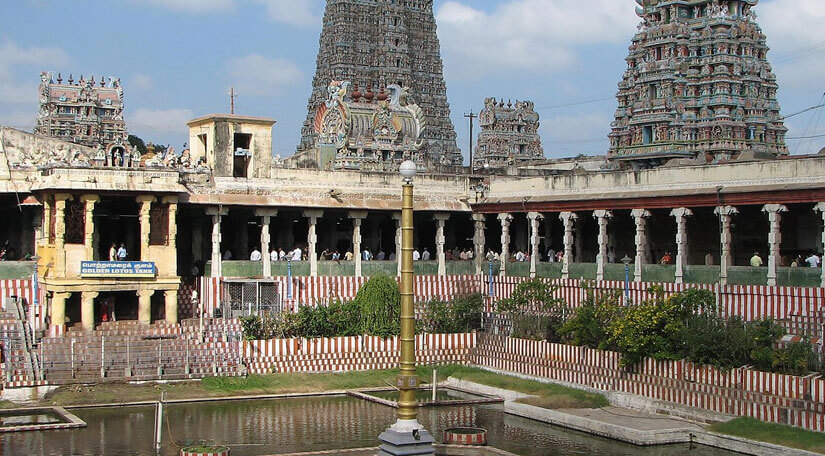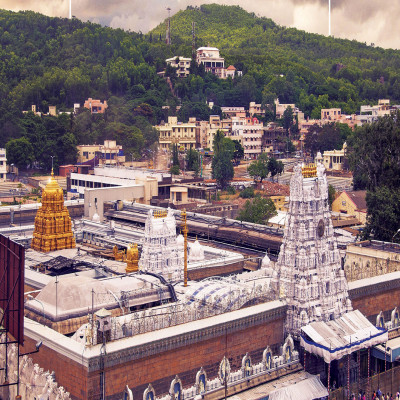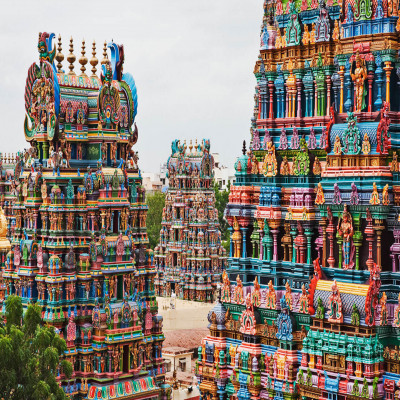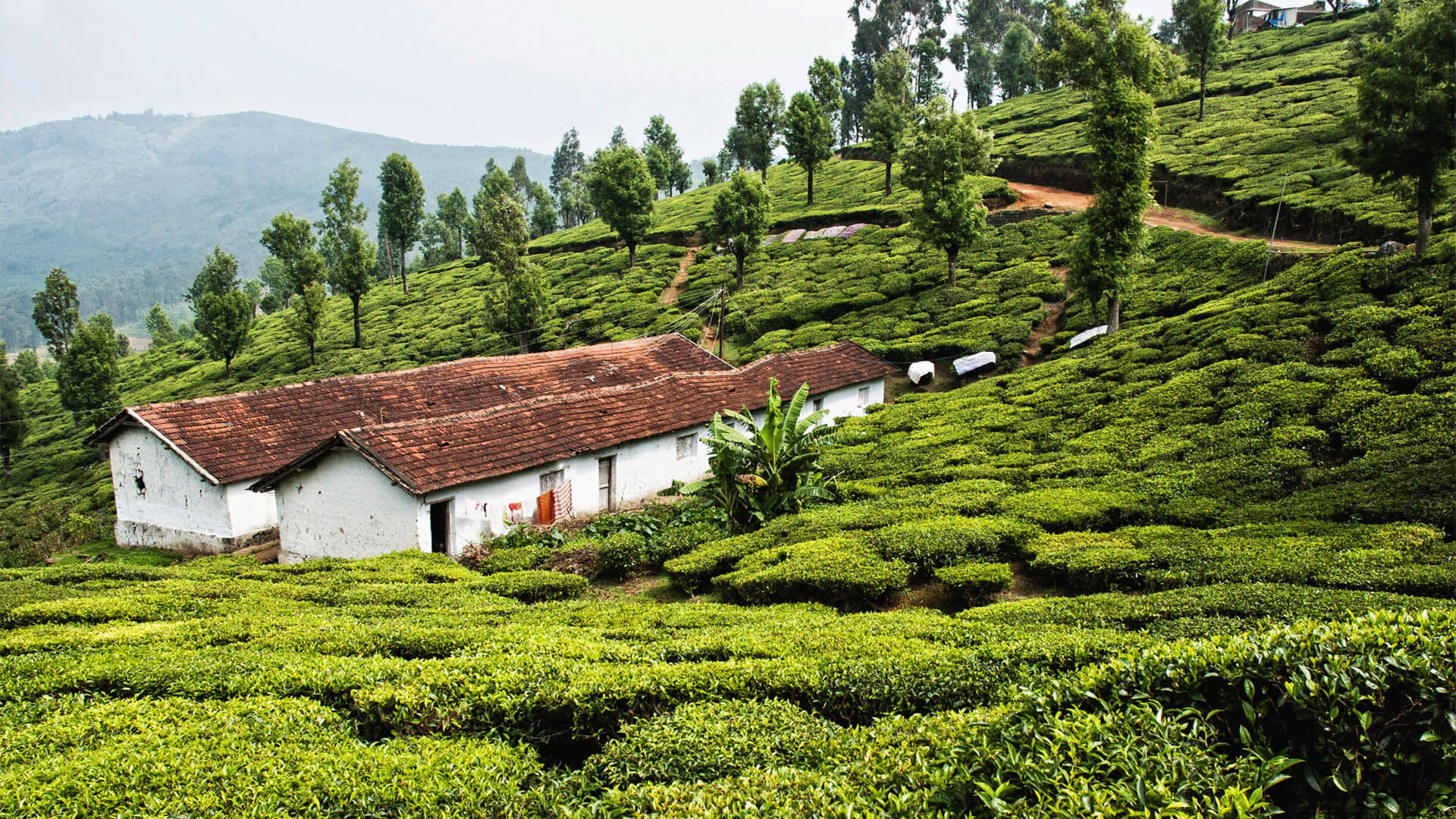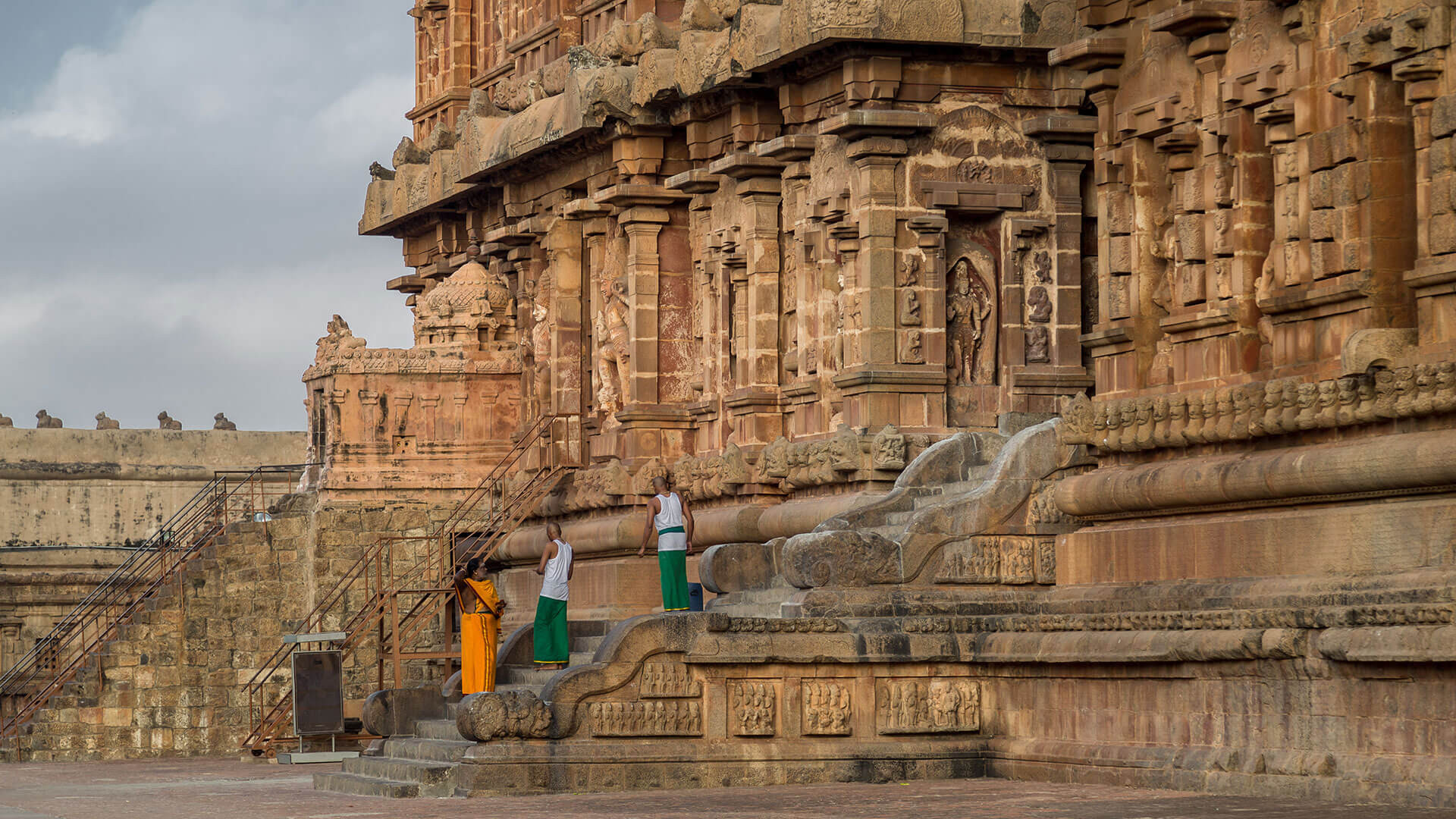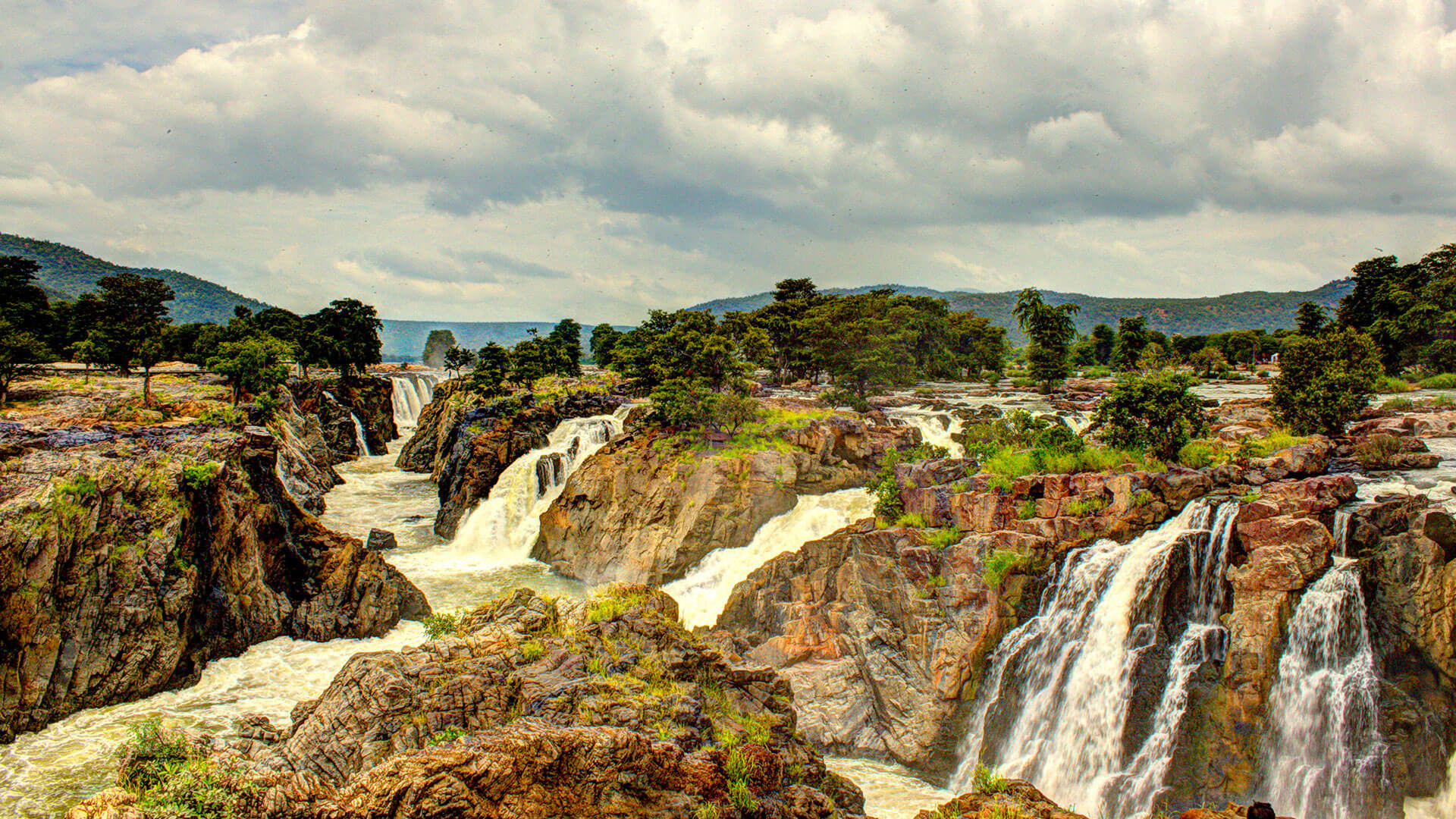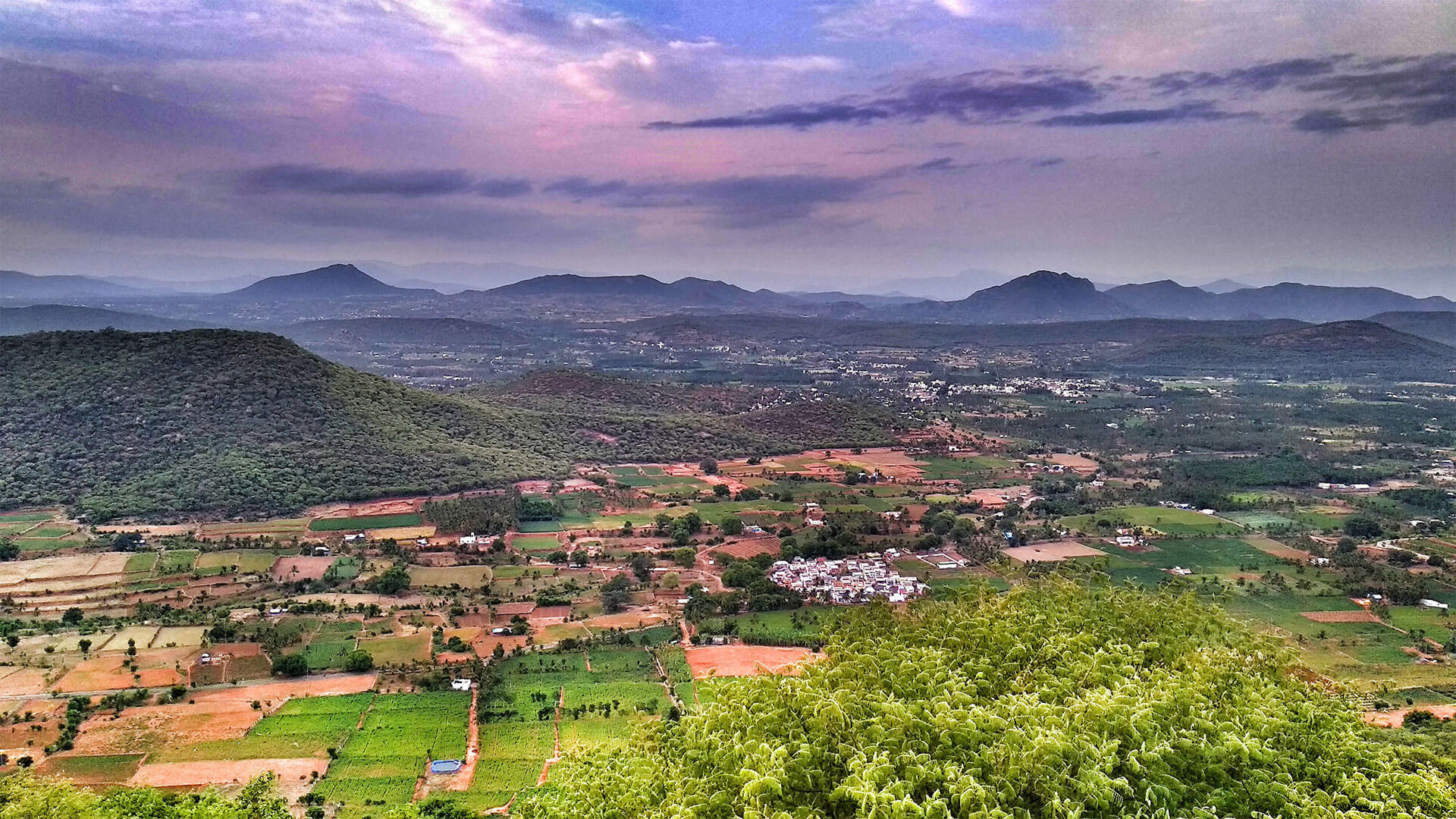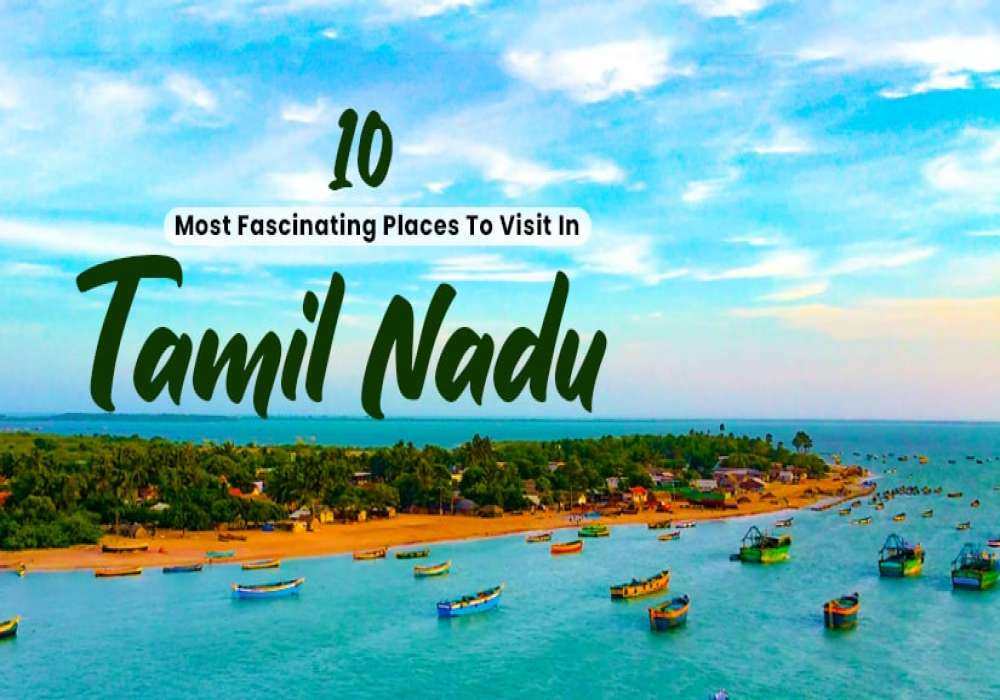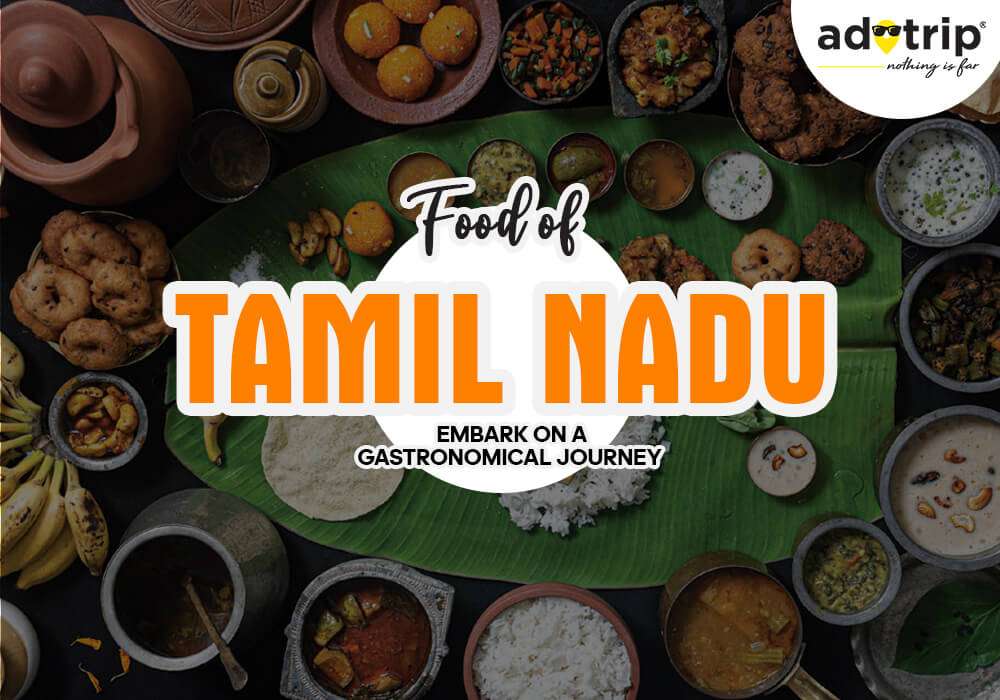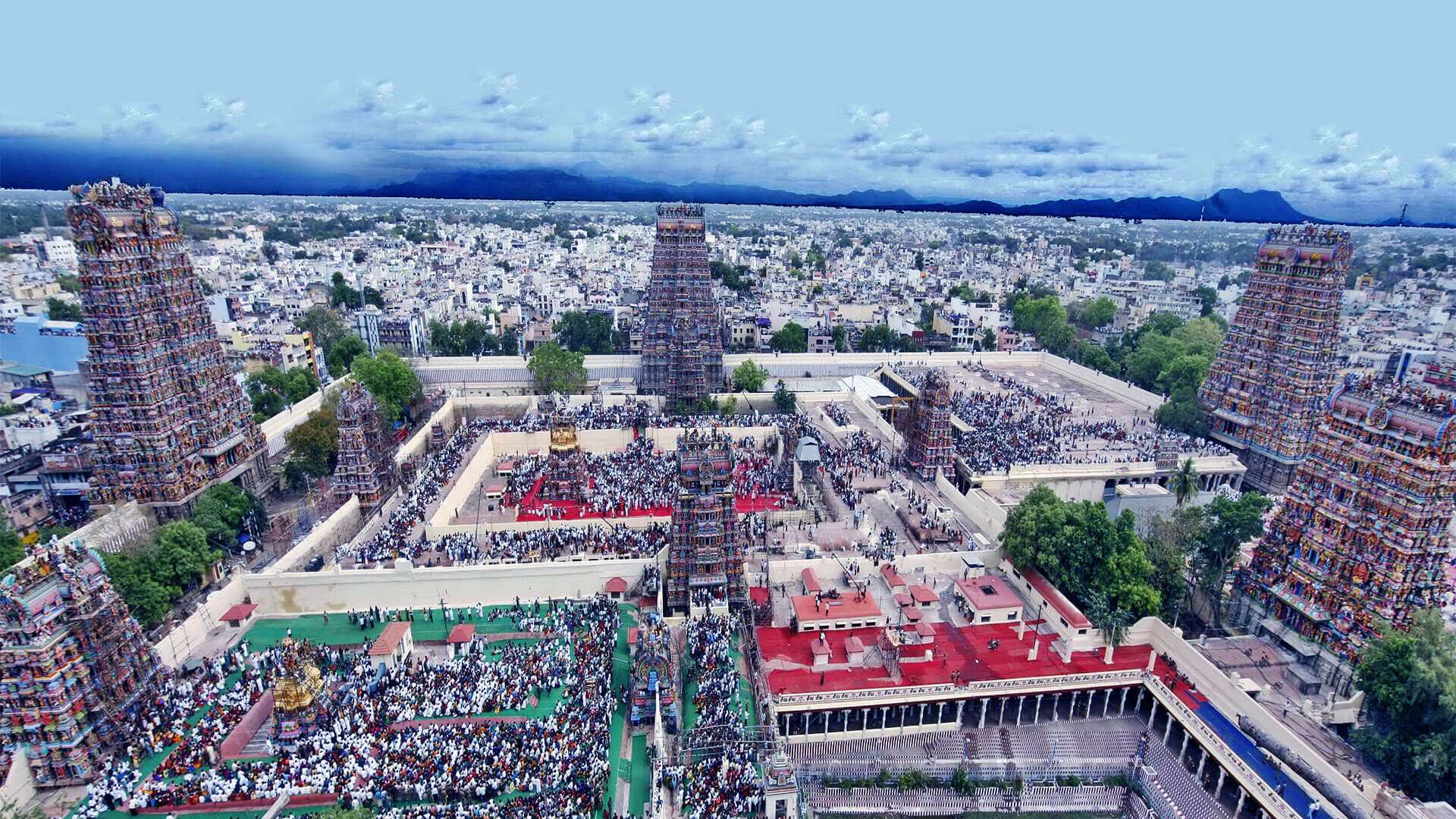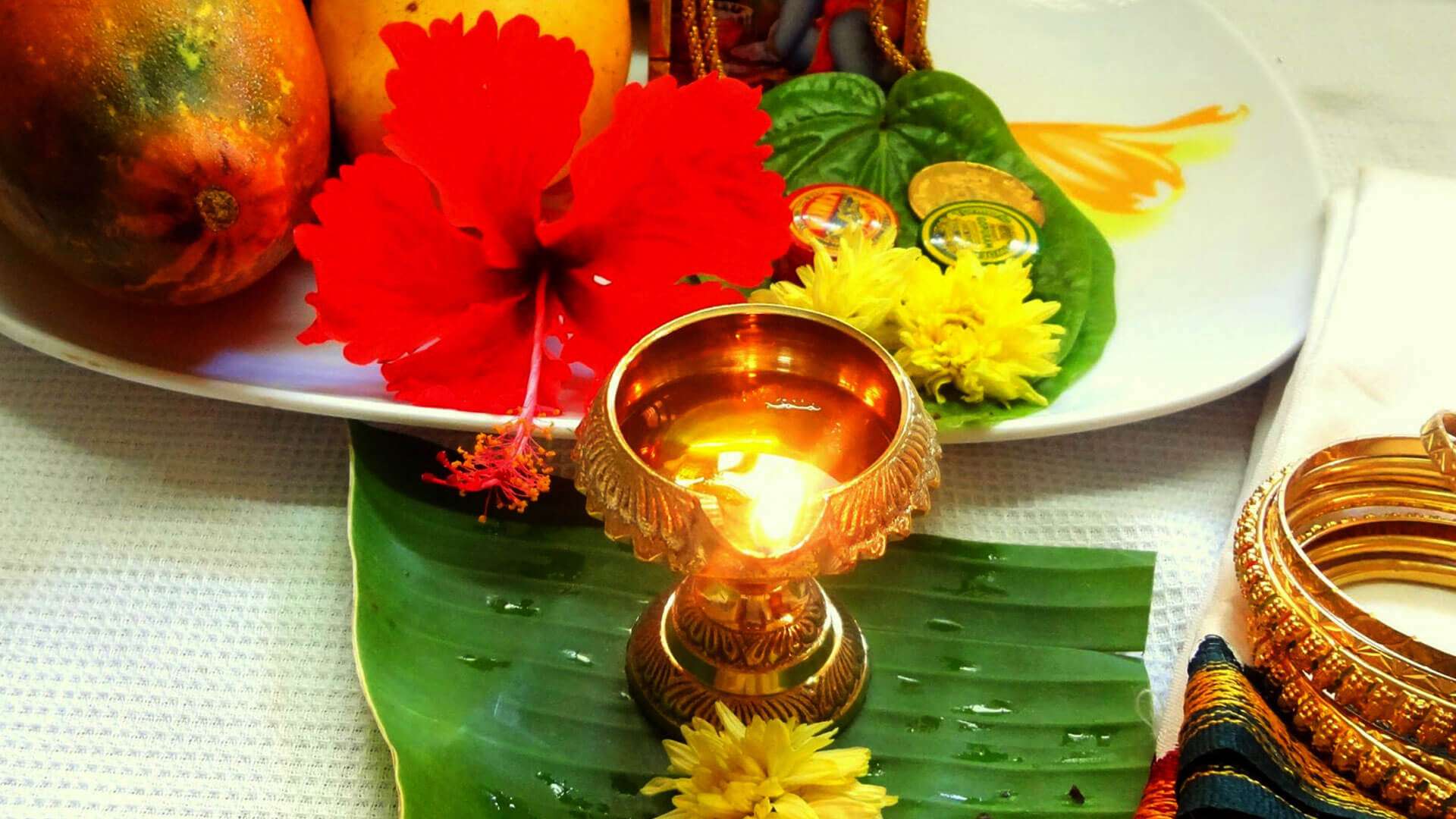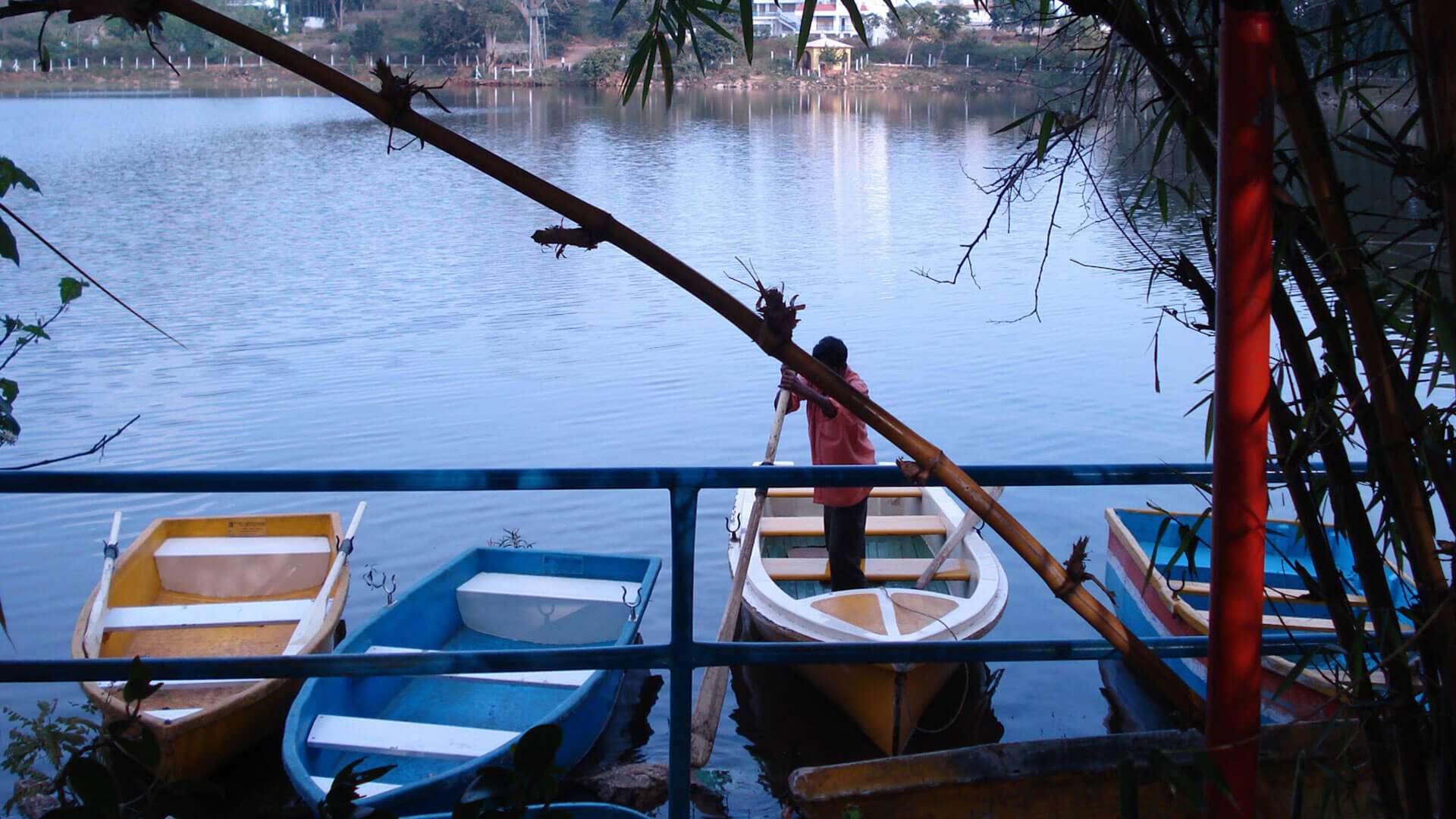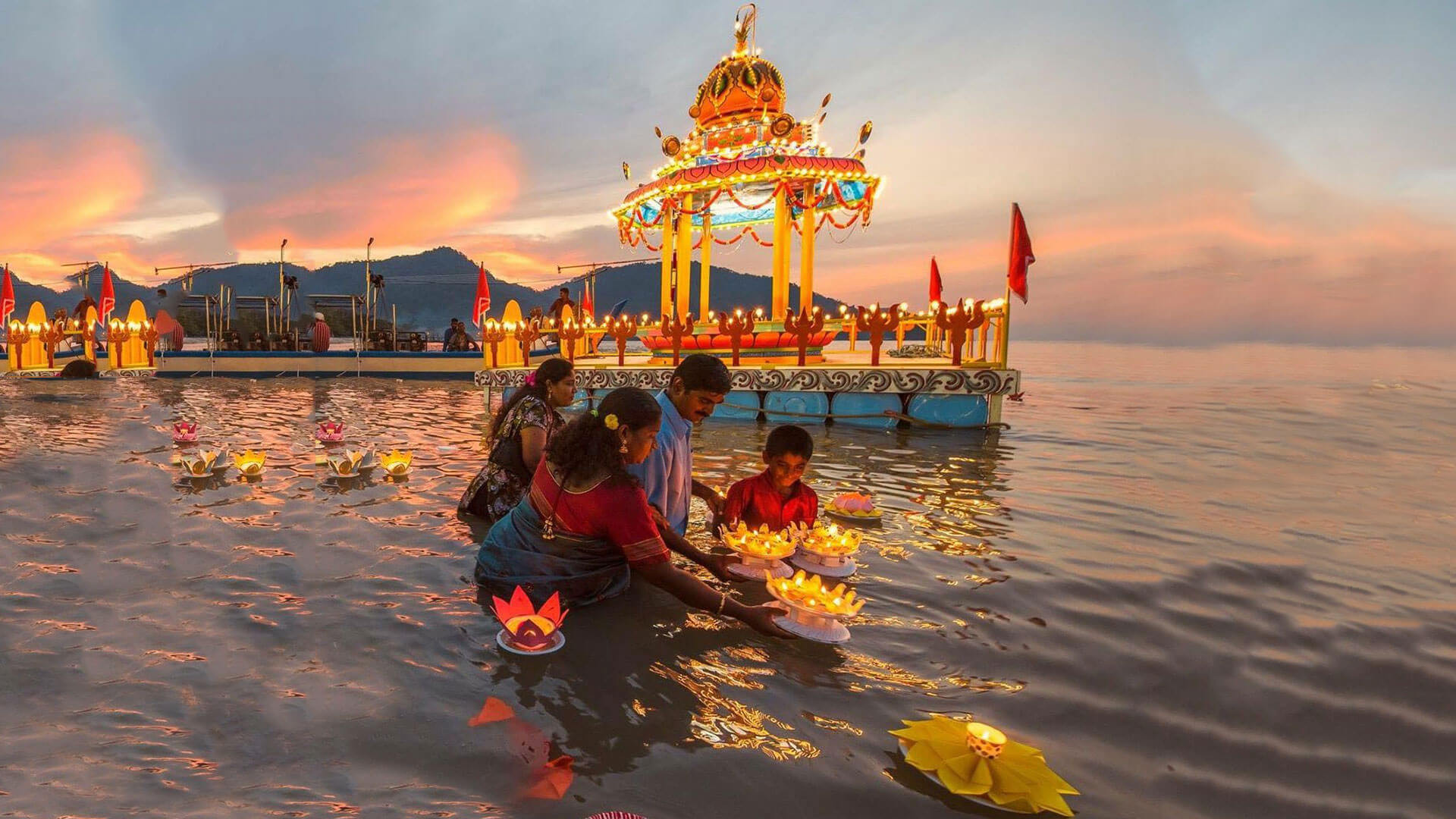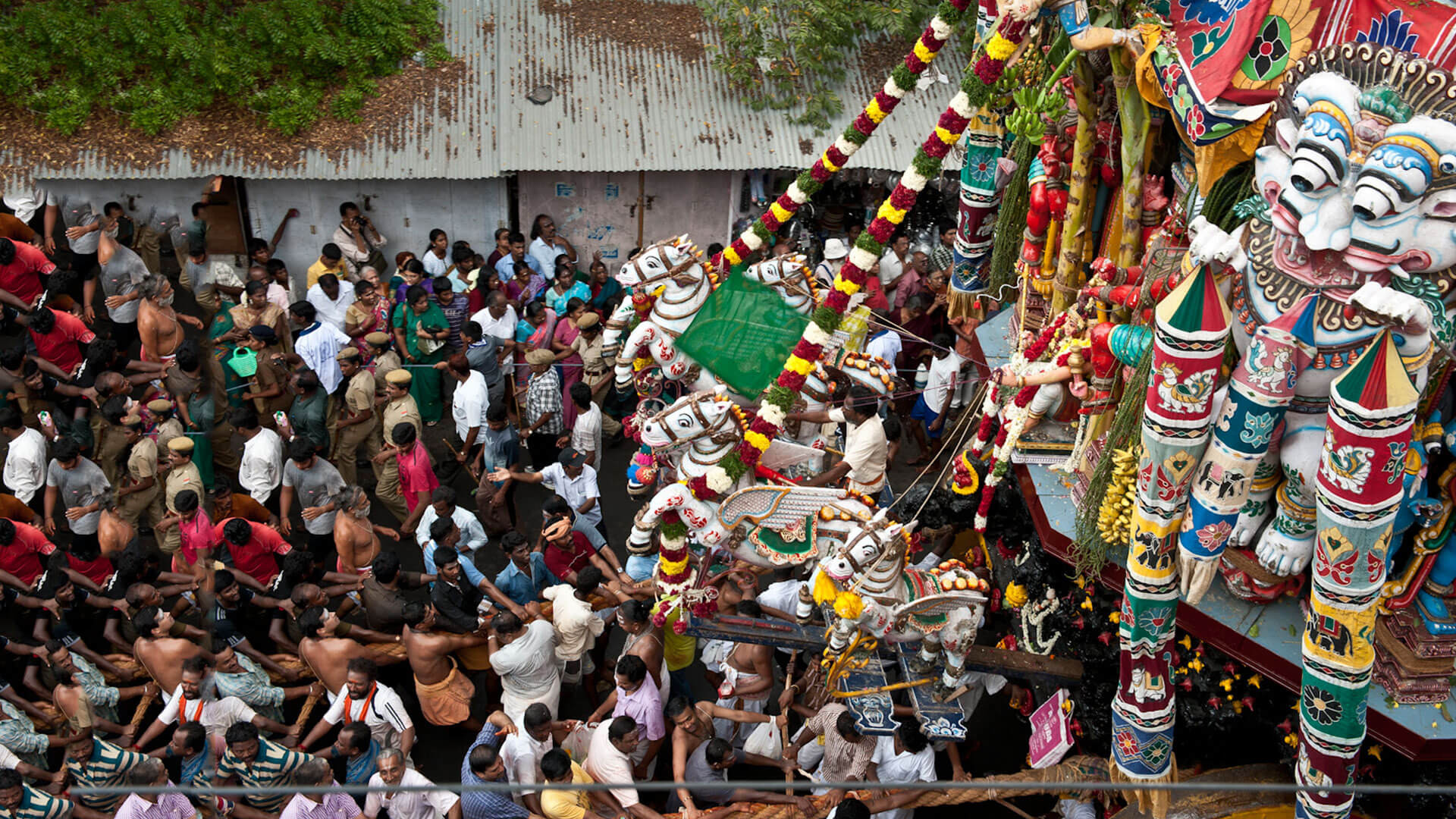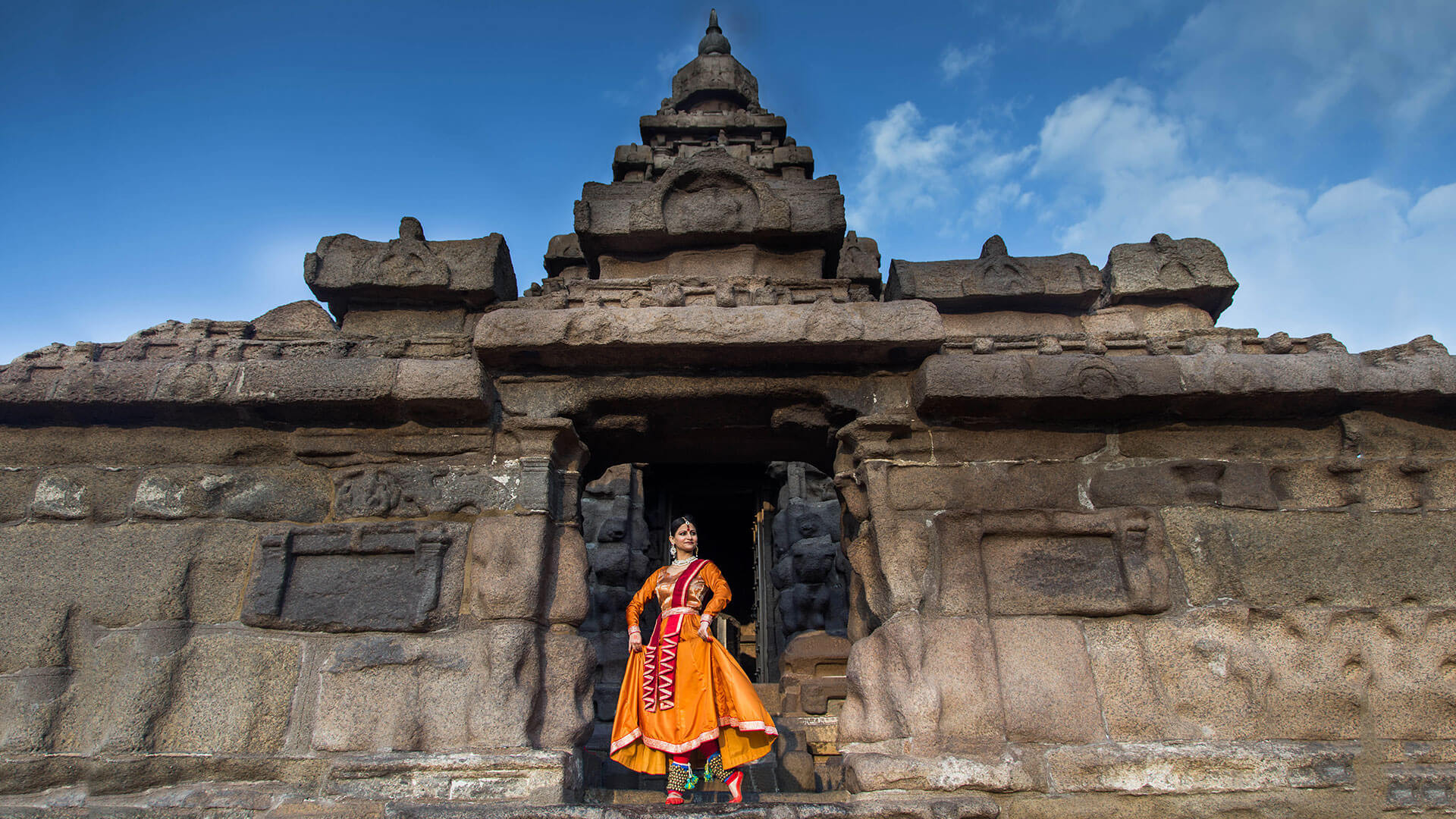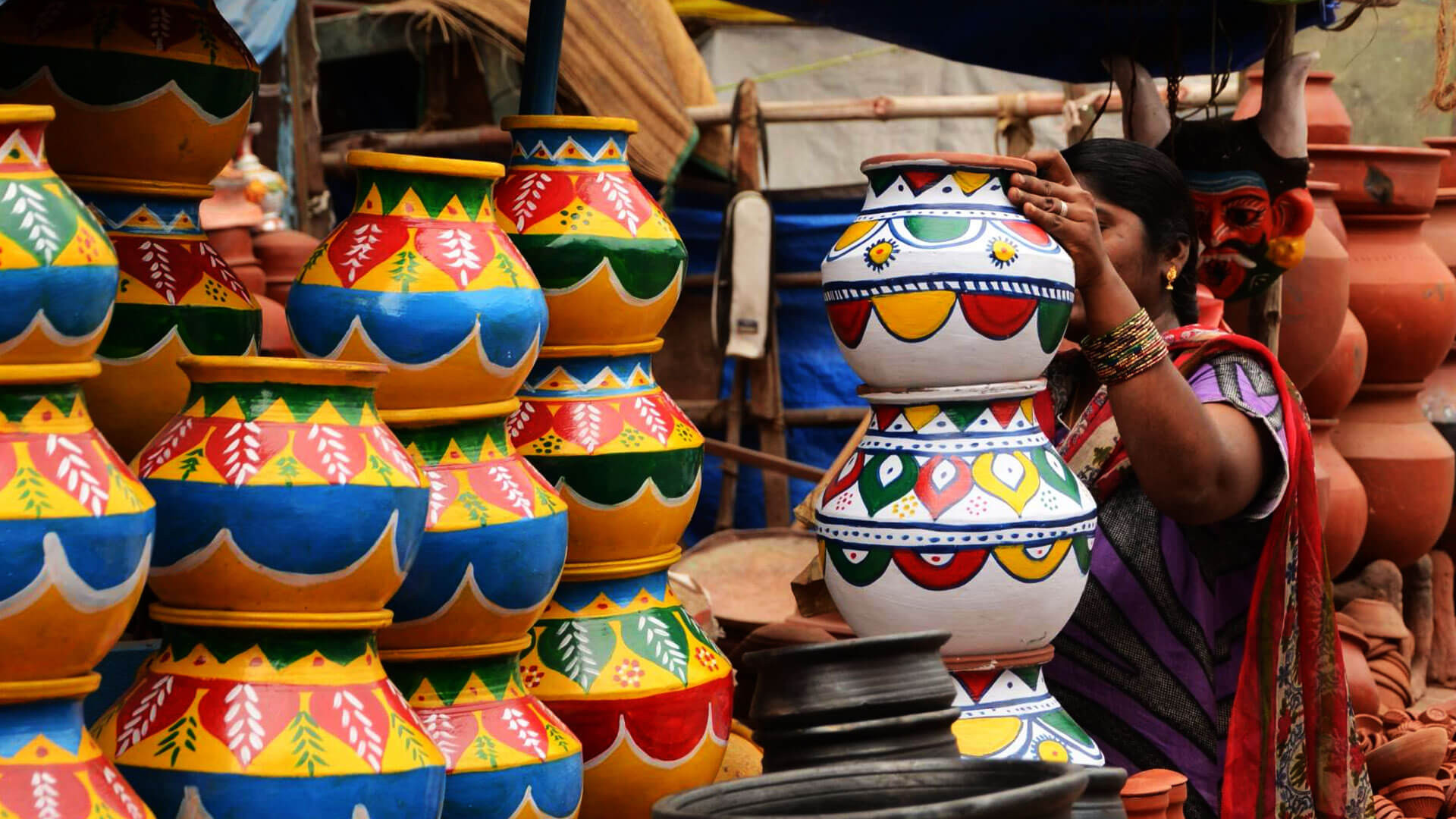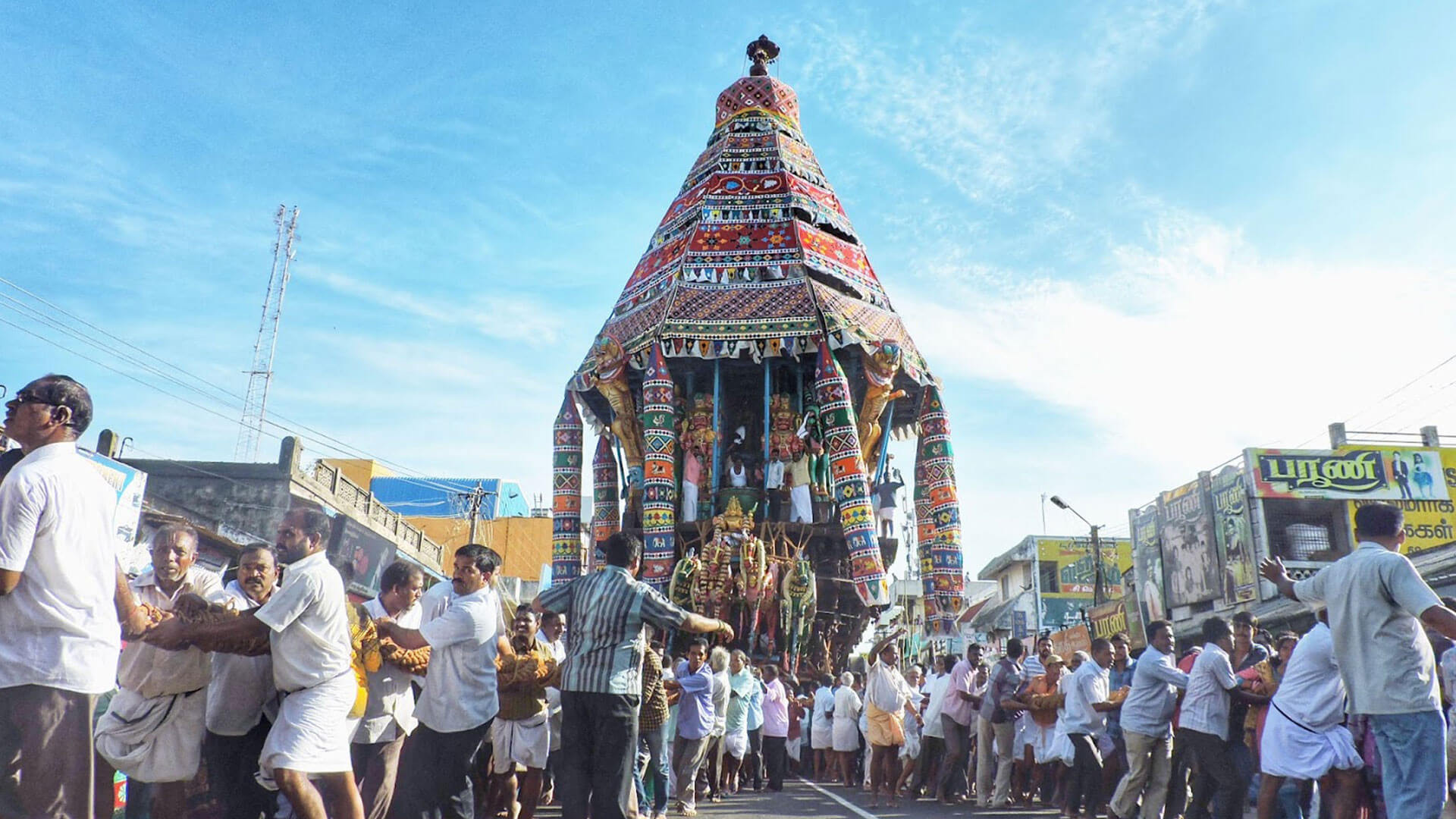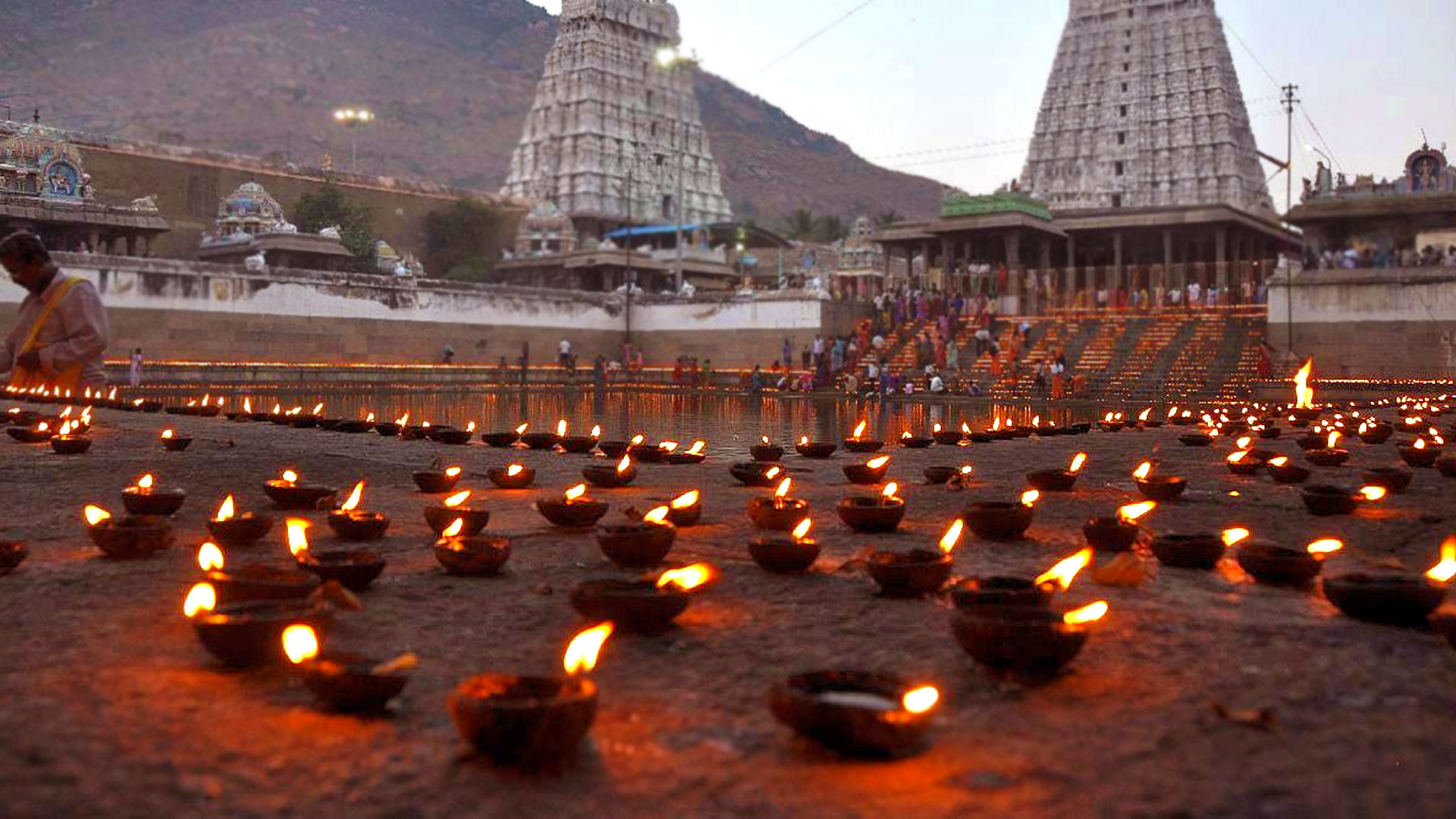Tamil Nadu Tour Packages 2025
Cities in Tamil Nadu
Best Destinations in Tamil Nadu
Why is Tamil Nadu Called the Land of Temples?
Tamil Nadu is home to some of the most magnificent temples in India, earning it the title 'Land of Temples.' With over 33,000 temples, many dating back thousands of years, the state is a spiritual and architectural marvel. From the towering gopurams of the Meenakshi Amman Temple in Madurai to the UNESCO-listed Brihadeeswarar Temple in Thanjavur, each structure tells a story of devotion, history, and artistic excellence.
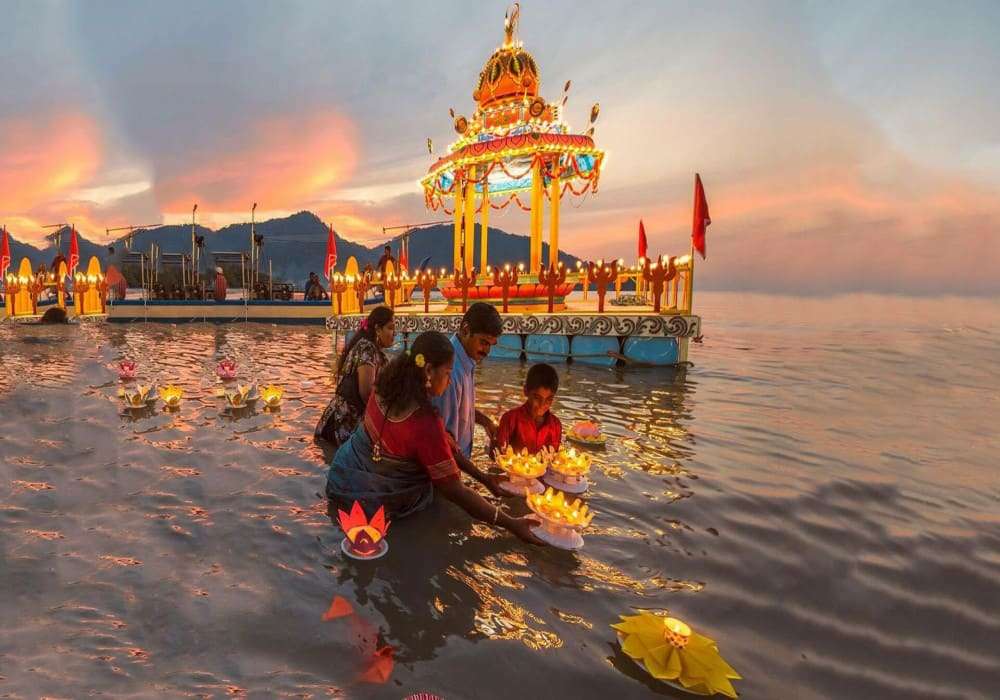
This southern state isn’t just a place—it’s a feeling. It’s where tradition and modernity blend seamlessly. Where centuries-old temples stand proudly beside IT hubs. Every street corner has a story to tell, from the grand festivals of Madurai to the scenic beaches of Mahabalipuram.
Tamil Nadu tourist places offer a mix of rich cultural heritage, scenic hill stations, and mouth-watering cuisine. Explore the magnificent Brihadeeswarar Temple, relax in the serene hills of Kodaikanal, or witness the magic of the Meenakshi Amman Temple. Don’t miss the traditional Bharatnatyam performances, the vibrant Pongal celebrations, and the authentic Chettinad cuisine. Ready to explore? Keep reading!
Historical Significance of Tamil Nadu
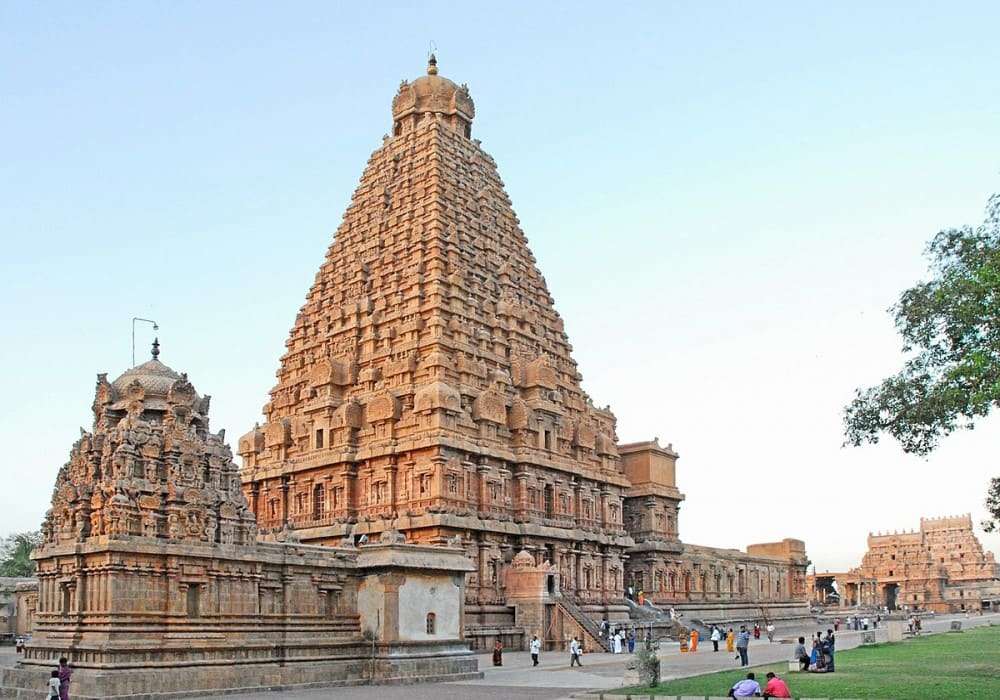
Tamil Nadu has a rich history dating back over 2,000 years. It was home to powerful dynasties like the Cholas, Pandyas, and Pallavas, who left behind stunning temples, intricate sculptures, and grand monuments. The Brihadeeswarar Temple in Thanjavur, a UNESCO World Heritage Site, stands as a testament to their architectural brilliance.
During British rule, Tamil Nadu played a significant role in India’s freedom struggle, with Chennai emerging as a key political and trade centre. Today, the state proudly preserves its heritage while embracing modernity.
Read More: Temples in Tamil Nadu
Climate in Tamil Nadu
Tamil Nadu enjoys a tropical climate, making it a year-round destination. Summers (March to June) can be hot, while the monsoon season (July to September) brings refreshing rains. Winters (October to February) are pleasant and ideal for exploring the state's best tourist places.
Best time to visit: October to March
Tamil Nadu Culture – A Blend of Tradition and Art
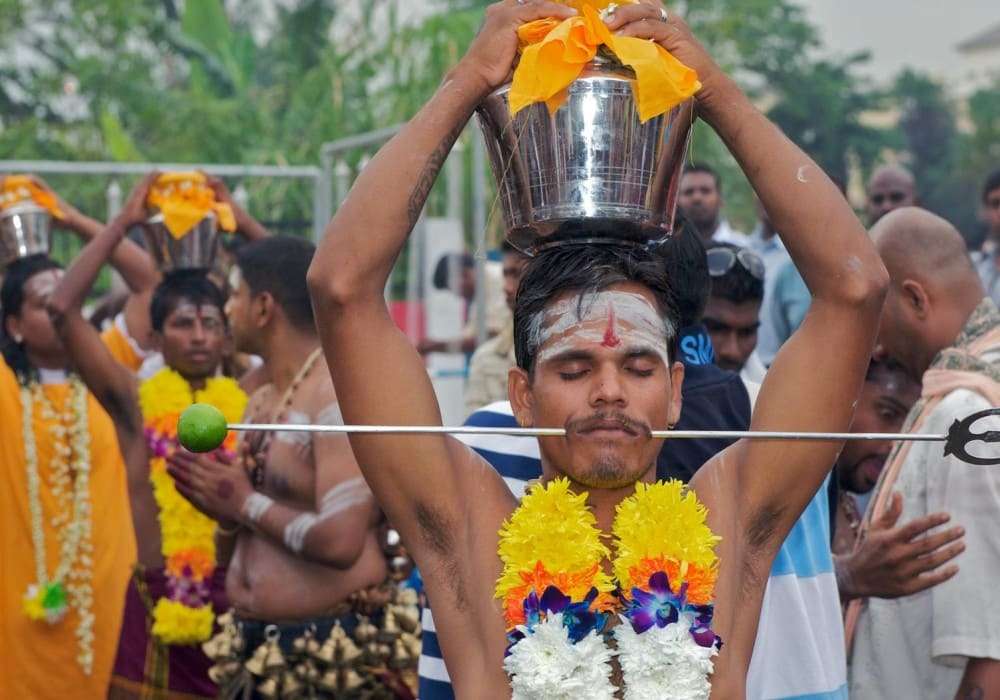
Tamil Nadu’s culture is deeply rooted in its traditions, music, and art forms. Bharatanatyam, one of the oldest classical dance forms, originated here. Carnatic music thrives in the state, especially in Chennai, which hosts the famous December Music Season.
Festivals like Pongal, Karthigai Deepam, and the Madurai Chithirai Festival reflect Tamil Nadu’s vibrant spirit. The cuisine is a treat for the taste buds—idli, dosa, Chettinad curries, and filter coffee are must-tries!
Explore in Detail : Culture of Tamil Nadu
Tamil Nadu Waterfalls – Nature’s Hidden Gem
Tamil Nadu is home to stunning waterfalls perfect for nature lovers:
- Courtallam Falls – Known as the ‘Spa of South India.’
- Hogenakkal Falls – Often called the 'Niagara of India.'
- Silver Cascade Falls – A scenic waterfall in Kodaikanal.
- Agaya Gangai Falls – A breathtaking waterfall in Kolli Hills.
Popular Highland Escapes in Tamil Nadu – A Breathtaking Retreat
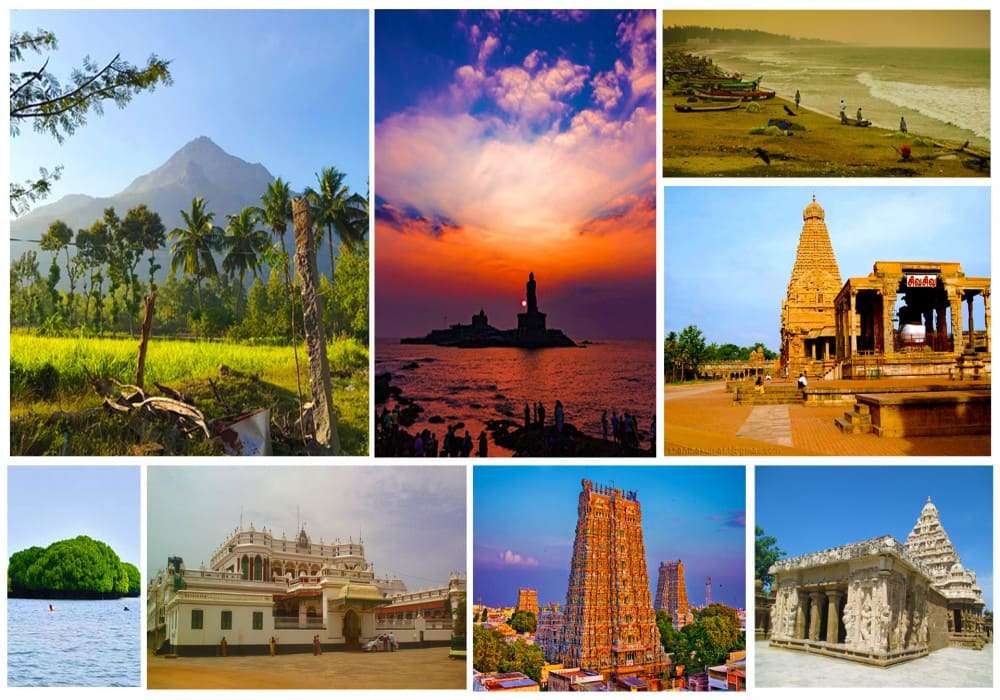 If you love mountains, Tamil Nadu has some stunning hill stations:
If you love mountains, Tamil Nadu has some stunning hill stations:
- Ooty – The Queen of Hill Stations, known for its tea plantations.
- Kodaikanal – Famous for its misty valleys and serene lakes.
- Yercaud – A lesser-known gem with lush green landscapes.
- Valparai – A paradise for wildlife lovers and nature enthusiasts.
- Coonoor – A peaceful retreat with breathtaking views.
Read More : Things To Do In Tamil Nadu
Honeymoon Destinations in Tamil Nadu
Looking for a romantic getaway? These Tamil Nadu honeymoon places are perfect:
- Kanyakumari – Witness breathtaking sunsets at the southernmost tip of India.
- Yelagiri – A quiet hill station with scenic beauty.
- Meenakshi Temple, Madurai – A spiritual yet romantic experience.
- Mahabalipuram Beach – A perfect blend of history and relaxation.
Top Free Things to Do in Tamil Nadu
- Visit Marina Beach – Enjoy the longest urban beach in India.
- Explore Meenakshi Temple – Marvel at its stunning Dravidian architecture.
- Stroll through Bryant Park in Kodaikanal – A beautiful botanical garden.
- Admire the stone carvings in Mahabalipuram – A UNESCO-listed wonder.
- Experience sunrise at Kanyakumari – Where three seas meet.
- Visit the Thousand Lights Mosque in Chennai – A stunning architectural marvel.
- Hike through the Nilgiris – Explore scenic trails in Ooty and Coonoor.
Why Visit Tamil Nadu?
- Diverse Landscapes – Beaches, mountains, and forests.
- Rich Heritage – Home to some of the most magnificent temples in India.
- Amazing Cuisine – Experience authentic South Indian flavours.
- Festivals & Culture – Witness vibrant celebrations throughout the year.
- Perfect for Every Traveller – Adventure seekers, nature lovers, and history buffs.
When to Visit Tamil Nadu?
The best time to explore Tamil Nadu tourist places is between October and March, when the weather is pleasant.
How to Reach Tamil Nadu?
- By Air: Chennai, Coimbatore, and Madurai have major airports with flights connecting to international and domestic cities.
- By Train: Tamil Nadu is well-connected by railway, with major stations in Chennai, Coimbatore, Madurai, and Trichy.
- By Road: The state has a strong road network, with buses and taxis available for easy travel.
Tamil Nadu Tour Packages – Your Perfect Getaway
Experience the divine aura of temple towns, the serenity of misty hill stations, and the coastal charm of sun-kissed beaches—all in one incredible journey through Tamil Nadu. Witness the grandeur of Brihadeeswarar Temple, cruise through the scenic backwaters of Pichavaram, or indulge in the flavors of authentic Chettinad cuisine. Every destination offers a blend of history, tradition, and breathtaking landscapes.
With our expertly curated tour packages, explore Tamil Nadu in a way that speaks to your soul. Whether it’s a spiritual retreat, a heritage trail, or a nature escape, your perfect journey begins here.
Frequently Asked Questions about Tamil Nadu
Q. What is the best time to visit Tamil Nadu?
A. The best time to visit is from October to March when the weather is pleasant for sightseeing.
Q. Do I need a permit to visit any place in Tamil Nadu?
A. No, Indian and foreign tourists do not need special permits to visit Tamil Nadu.
Q. How many days are enough to explore Tamil Nadu?
A. A 7-10 day trip is ideal to explore key destinations like Chennai, Madurai, Ooty, and Rameswaram.
Q. What are the must-visit places in Tamil Nadu?
A. Some of the best places in Tamil Nadu include Chennai, Mahabalipuram, Kanyakumari, Madurai, and Ooty.
Q. Is Tamil Nadu safe for solo travellers?
A. Yes, Tamil Nadu is safe for solo travellers, including women. Stick to popular areas and follow basic safety precautions.
Q. What are the best adventure activities in Tamil Nadu?
A. Trekking in the Nilgiris, boating in Kodaikanal, and wildlife safaris in Mudumalai National Park are great options.
Q. Are there direct flights to Tamil Nadu?
A. Yes, major cities like Chennai, Coimbatore, and Madurai have airports with direct flights from various parts of India and abroad.
Q. What are the famous festivals of Tamil Nadu?
A. Pongal, Tamil New Year, Natyanjali Dance Festival, and Mahamaham Festival are major celebrations.
Q. What should I pack for a trip to Tamil Nadu?
A. Light cotton clothes, sunglasses, sunscreen, and comfortable footwear are ideal. Carry warm clothes if visiting hill stations.
Q. Can I find vegetarian food in Tamil Nadu?
A. Yes, Tamil Nadu is a paradise for vegetarians, with delicious options like dosa, idli, and sambar available everywhere.

